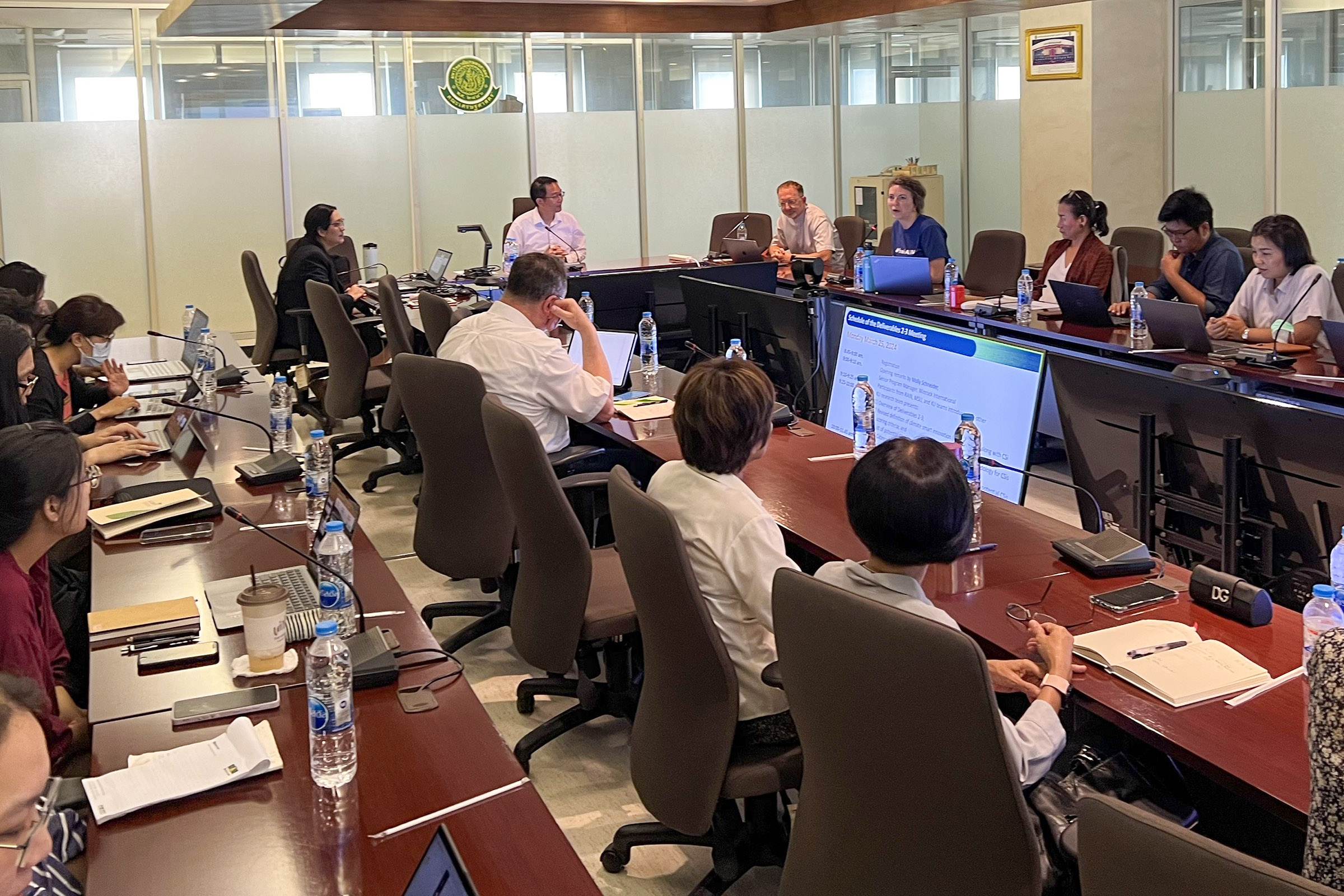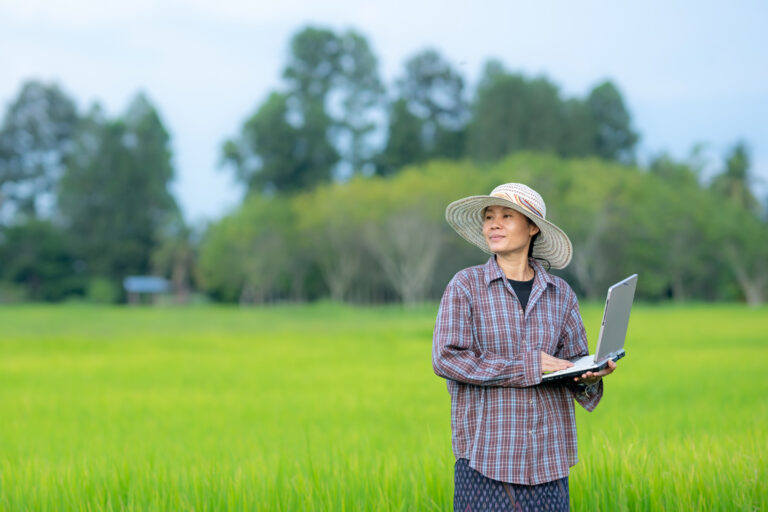
Evidence-based AgTech audit: A #thaiRAIN success story
Conclusion of #thaiRAIN’s First S of the 5-S Approach
#thaiRAIN has completed the first phase, Source, of its evidence-based participatory approach called “5-S,” which involves Sourcing, Supporting, Scaling, Selling, and Sharing agricultural innovations. In its third year of operation, the project will validate the market for all audited AgTech to determine the support needed in preparation for scaling.
The sourcing process involved a rigorous audit of each innovation by a research team from Kasetsart University (KU), led by Associate Professor Dr. Witsanu Attavanich of the Faculty of Economics. The team comprises academic experts specializing in the project’s six target crops: rice, cassava, longan, mangosteen, durian, and coconut.
At the start of this process, #thaiRAIN collaborated with its core partners, Michigan State University (MSU) and KU, to identify AgTech and design the audit steps. The KU research team and #thaiRAIN selected active and emerging AgTech for the first round of the audit, relying primarily on knowledge and insights gathered by Dr. Attavanich’s team.
In the second round, the team organized evidence panels to review a long list of AgTech. These panels included stakeholders across the value chain, such as end users, innovators, businesses, government agencies, and other non-governmental organizations.
Panel members assigned scores to each AgTech based on cost-effectiveness, ease of adoption, and technology readiness.
In September 2024, the team completed the audit process with 33 potential AgTech screened and presented the final report to #thaiRAIN. These AgTech fall into six major categories: early warning systems, production planning, site-specific nutrient management, new seed varieties, irrigation and water management, and horticulture technologies.
MSU is developing a white paper documenting the auditing methodology, including building evidence panels, engaging participants, establishing a scoring system, and facilitating dialogue. This paper will form part of the final S in #thaiRAIN’s “5-S” approach: Sharing.
Rigorous AgTech Audit Backed by Evidence
Dr. Siwabhorn Pipitpukdee, a researcher at KU’s Faculty of Economics, stated that the auditing process ensures the evidence panels receive the most comprehensive information possible.
During the first round, researchers solicited feedback from crop-specific experts about the cost-effectiveness, ease of adoption, and technology readiness of each AgTech.
Audit results were then reviewed using evidence panels, allowing value chain actors to discuss the findings and address issues specific to each AgTech.
Each evidence panel consisted of four participant groups:
- Farmers and companies as beneficiaries
- Researchers on the auditing team
- Government agencies responsible forAgTech extension
- Other researchers specializing in specific crops
Dr. Siwabhorn emphasized the thoroughness of the auditing process, highlighting the importance of listening to end users and relevant parties across the crop value chains.
“The evidence panel helped the research team revisit their study and improve the initial audit report,” she said.
“The evidence panel helped the research team in revisiting their study and improving the initial audit report.”
– Dr. Siwabhorn Pipitpukdee, Researcher, Kasetsart University
Audit Results Sharpen #thaiRAIN’s Focus
The research team designed the AgTech audit process to leverage academic knowledge and a network of research experts for each targeted crop.
The evidence panel format used in the second round enabled the team to obtain comprehensive feedback from various players in each crop’s value chain.
These interactive sessions allowed participants to share unique experiences and insights.
“The AgTech auditing process is rigorous and efficient. It is significantly useful for the market validation and scale-up processes,” said Dr. Chanakan Kupachaka, #thaiRAIN’s Technical Director.
“The initial stage of the procedure benefits from professionals with academic expertise in each crop. The second round helps the research team gain a clear and focused understanding of the needs and concerns of AgTech users.”
The inclusion of diverse actors in the evidence panels also raised awareness of #thaiRAIN’s mission in the agrifood sector.
“The process effectively introduced #thaiRAIN to other organizations, as it involved many key actors in the value chain,” Dr. Chanakan said. “For example, during a session about cassava AgTech, #thaiRAIN connected with four business associations and the Thai Tapioca Development Institute. It was a valuable opportunity for the project to engage targeted stakeholders and help scale CSi to farmers.”
“The AgTech auditing process is rigorous and efficient. It is significantly useful for the market validation and scale-up processes.”
– Dr. Chanakan Kupachaka, Technical Director, RAIN Project
Related Projects

